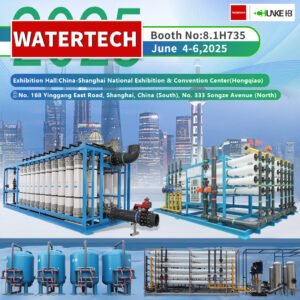Reverse Osmosis & Water Treatment in Uruguay
CHUNKE projects of Reverse Osmosis Water Treatment in Uruguay including different types of water treatment systems.
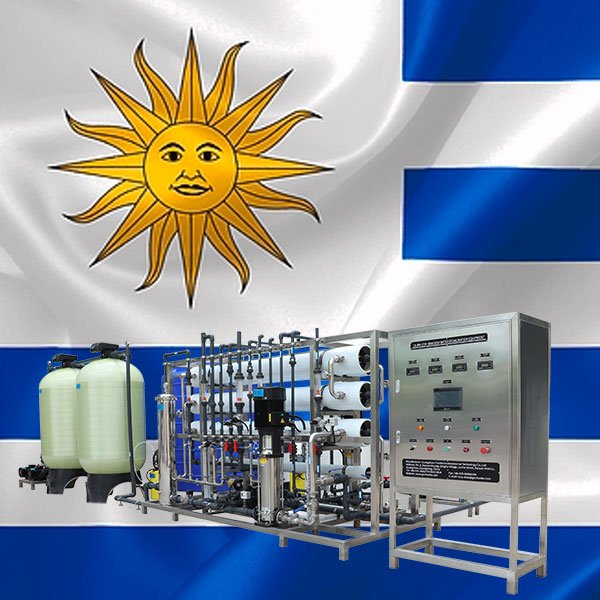
Uruguay, a South American country, is officially known as the Oriental Republic of Uruguay. It’s nestled in the Southern Cone region. Argentina borders it to the west and southwest. Brazil is to its north and northeast. The Río de la Plata and the Atlantic Ocean border it to the south and southeast respectively. Spanning about 181,034 square kilometers, it’s home to roughly 3.5 million people. Nearly 2 million of these reside in Montevideo, Uruguay’s capital and its largest city.
Uruguay holds the top rank for democracy in the Americas, and for peace, low corruption perception, and e-government in Latin America. Furthermore, it’s the South American nation with the lowest ranking in the Global Terrorism Index. Ranking second in the continent for economic freedom, income equality, per-capita income, and FDI inflows, it demonstrates significant progress. In terms of the Human Development Index, GDP growth, innovation, and infrastructure, Uruguay ranks third on the continent. Often considered one of Latin America’s most socially progressive countries, Uruguay excels in personal rights, tolerance, and inclusion. Notably, it has accepted the LGBT community with open arms. Demonstrating its progressive stance, the country has legalized cannabis consumption and production, same-sex marriage, prostitution, and abortion. As a founding member of the United Nations, OAS, and Mercosur, Uruguay has a significant role in international diplomacy.
Total Renewable Water Resources in Uruguay
Between 1971 and 2020, Uruguay renewable water resources remained stable at around 172.2 billion cubic meters per year.
- Renewable surface water: 172.2 billion cubic meters per year
- Renewable groundwater :22.9 billion cubic meters per year
- Renewable water resources per capita :49,572.1 cubic meters per year
- Dependency ratio :46.5
Meanwhile, CHUNKE provides wide range of filtration and economical solutions based on the Uruguay ’s water resources. Our pumps, dosing pumps, reverse osmosis membranes, electronic components, and drives are all world-renowned suppliers. So, our water treatment in Uruguay becomes more popular accordingly.
- Surface water is water from river, lake which can be treated using different methods, such as Ultrafiltration Systems, Brackish Water RO accordingly.
- Desalination can be used for water from ocean, or sea source, which can be treated using Sea Water Reverse Osmosis Systems; Desalination Systems
- Ground Water or brackish water is from water located in the pore space of soil and rock “Borehole well”, which can be treated using Reverse Osmosis Systems, Borehole Water Filtration Systems, Well Water Filtration Systems, Chemical Dosing, UV Water Sterilizer accordingly.
- Government water supply, which could have high level of hardness or high level of chlorine, can be treated with Water Softener System, Media Water Filters.
CHUNKE Projects of Water Treatment in Uruguay
Meanwhile, CHUNKE designs and produces water treatment systems that meet the World Health Organization requirements. Our pumps, dosing pumps, reverse osmosis membranes, electronic components, and drives are all world-renowned suppliers. So, our water treatment in Uruguay is suitable for drinking.
CHUNKE has over 15 years of experience as a global provider of B2B water treatment solutions for a variety of applications and industries, we offer a large selection of all types of reverse osmosis, ultrafiltration, electrodeionization and water treatment systems to meet your industrial needs accordingly. So, CHUNKE’s extensive global experience in engineering and manufacturing allows us to pre-engineer and customize water treatment and reverse osmosis systems to meet a wide range of customer requirements and specifications.
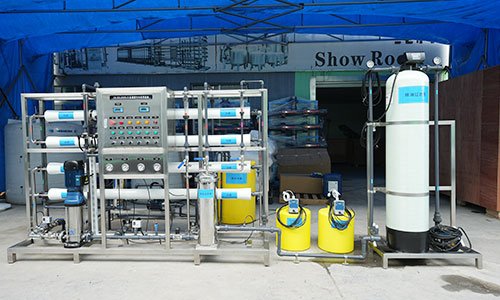
2T Reverse Osmosis Reclaimed Water Reuse Equipment
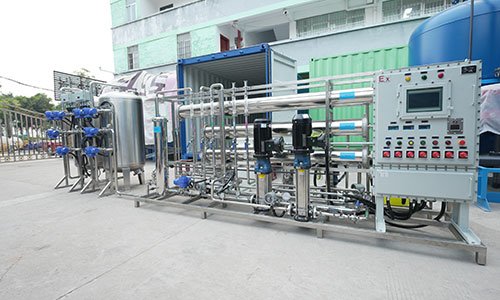
3T Secondary Reverse Osmosis Equipment
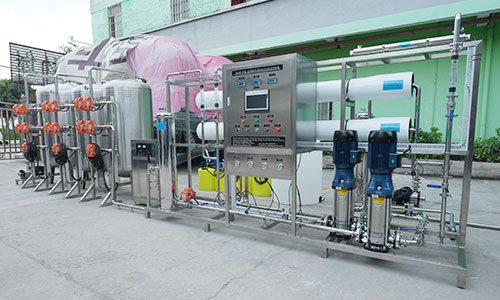
4T Reverse Osmosis
Equipment
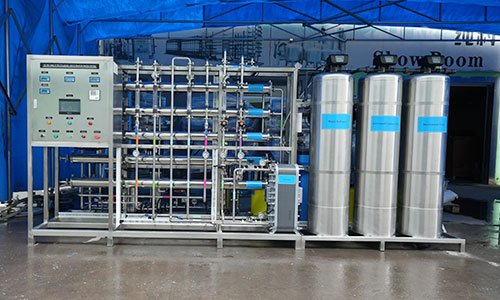
1000L Double-Stage Reverse Osmosis + EDI Equipment
The Need for Water Treatment in Uruguay
Uruguay, like many nations, faces water quality challenges. Arsenic contaminates the tap water across several towns. This contamination raises serious concerns. Reports suggest that arsenic levels exceed the safe limit in 163 towns. As a result, over 136,000 Uruguayans are potentially at risk. To tackle this, the government is actively exploring water treatment solutions.
Reverse Osmosis: A Promising Solution
Uruguay is considering reverse osmosis (RO) for water treatment. This technology uses a semipermeable membrane to remove water impurities. It’s effective at removing dissolved salts, minerals, and other contaminants. Thus, it’s an ideal solution for water purification. In Uruguay, we can use reverse osmosis systems to treat various water sources. Surface water, like rivers and lakes, can undergo treatment with ultrafiltration systems and brackish water RO. For seawater or ocean water sources, we can use desalination. We can also treat groundwater or brackish water from borehole wells using reverse osmosis systems, chemical dosing, and UV water sterilizers.
Government Initiatives and Water Treatment Projects
Working actively towards improved water treatment, the Uruguayan government collaborates closely with various stakeholders. They aim to ensure access to clean water for all. The Ministry of the Environment plays a key role in this process, examining different water treatment options. These include reverse osmosis, water purification units (UPAs), and absorption filters. Consequently, they can effectively address the presence of arsenic and other contaminants in water sources.
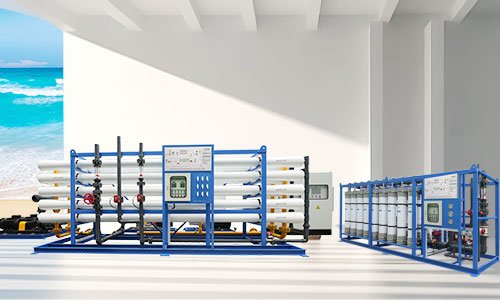
Private Sector Involvement and Desalination Plants
CHUNKE has also played a vital role in the development of water treatment solutions in Uruguay. Desalination plants, in particular, have gained popularity as an effective method of providing clean drinking water. Desalination involves the removal of salt and other impurities from seawater or brackish water, making it suitable for human consumption.
Environmental Considerations and Sustainability
While the focus is on addressing water scarcity and contamination, it is equally important to consider the environmental impact of water treatment processes. The energy consumption associated with desalination and other water treatment methods can have significant environmental implications. However, advancements in technology and the increasing use of renewable energy sources are helping to mitigate these concerns.
Efforts are being made to reduce the energy costs of desalination through various means. Increasing the membrane diameter and optimizing the operation processes can help minimize energy consumption. Additionally, the use of renewable energy sources, such as solar and wind power, is being explored to power desalination plants, making them more sustainable and environmentally friendly.
Cost and Affordability
Cost is a crucial factor in determining the feasibility and accessibility of water treatment solutions. The cost of water treatment depends on various factors, including location, technology, application, and environmental considerations. Desalination, for instance, can be a relatively expensive process due to the energy requirements and the complexity of the technology involved. However, advancements in reverse osmosis technology have helped reduce the energy costs associated with desalination.
To make water treatment more affordable and accessible, it is essential to consider the long-term benefits and cost-effectiveness of these systems. Investing in water treatment infrastructure may require significant upfront costs, but it can lead to substantial savings in the long run by reducing reliance on costly alternatives and improving public health outcomes.
Chunke is Trusted Water Treatment Supplier from China
Reverse osmosis water treatment plays a crucial role in addressing the water challenges faced in Uruguay. By utilizing advanced RO systems and complementary water treatment technologies, clean and safe drinking water can be made available to both military personnel and the local population. Wastewater treatment solutions further contribute to environmental sustainability and public health. Applying the lessons learned from previous water supply operations, Uruguay can enhance its water treatment efforts and ensure a sustainable supply of clean and safe drinking water for its people. With the implementation of innovative and efficient water treatment solutions, reverse osmosis continues to be a valuable tool in the pursuit of clean water in Uruguay.
Chunke Water Treatment‘s expertise in producing high-quality reverse osmosis systems has contributed to improving water treatment capabilities in Uruguay. So, their reliable and efficient RO plants have been implemented in various projects across the country, ensuring access to clean and safe drinking water.

